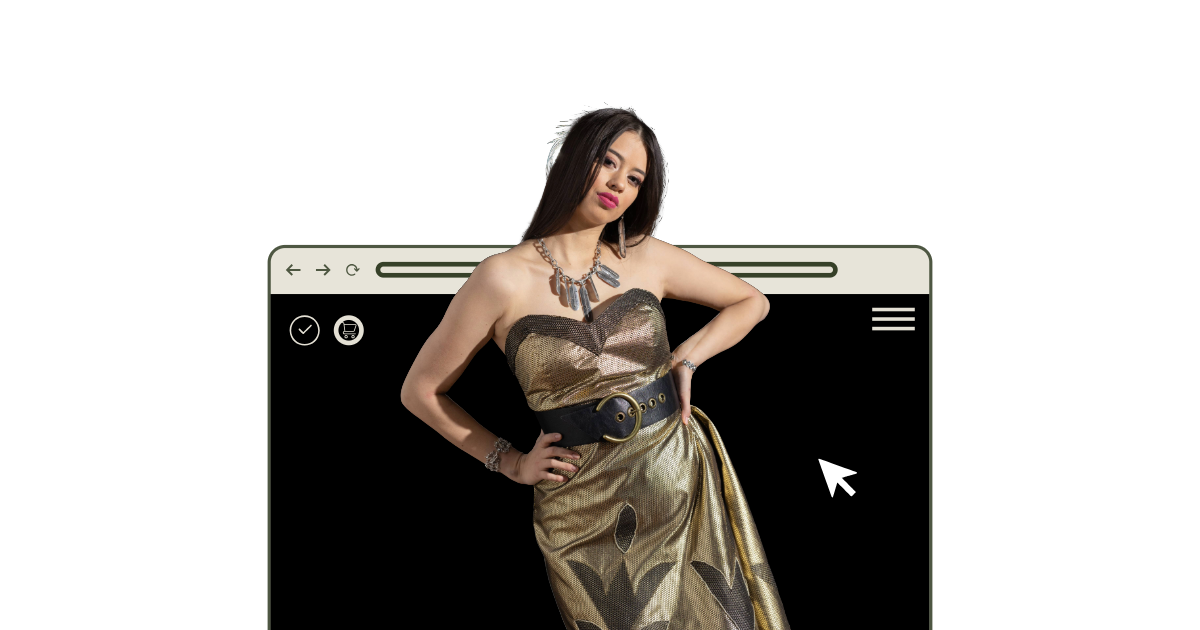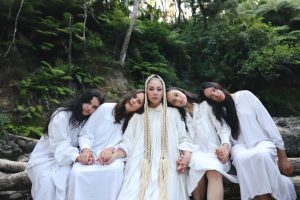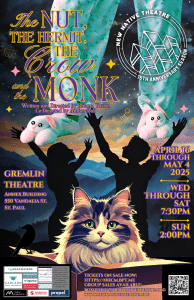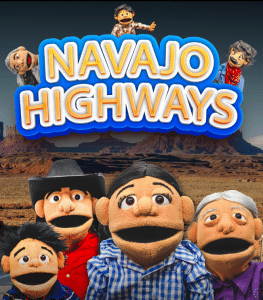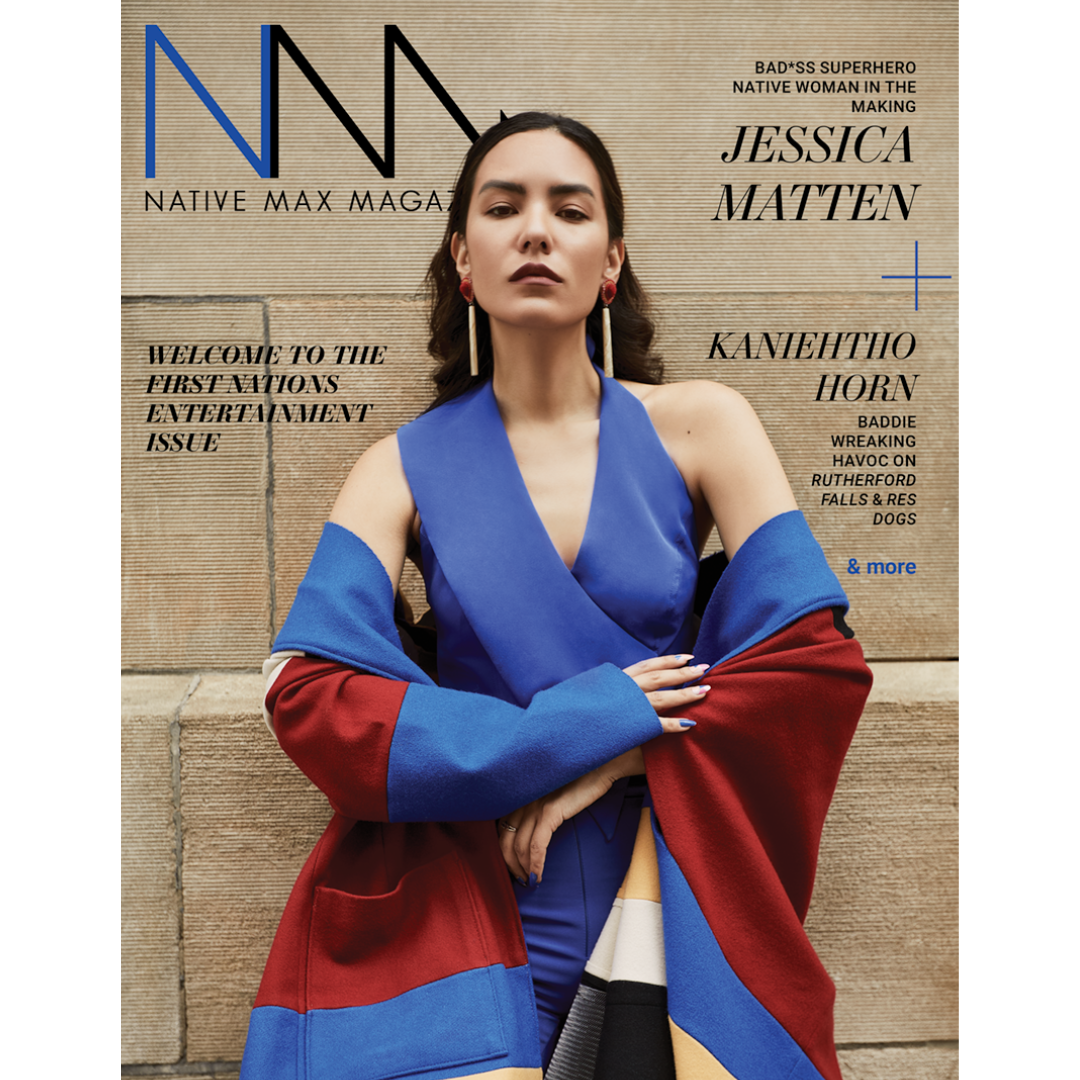Select a subscription plans
You need a subscription to access this content.
In the realm of sports and entertainment, few figures shine as brightly as former two-weight division, six-time world champion boxer turned actress Kali Reis (Cape Verdean/Seaconke Wampanoag/Nipmuc/Cherokee). Hailing from East Providence, Rhode Island, Reis not only conquered the boxing ring with her unparalleled skill and determination but also emerged as a beacon of representation and authenticity for indigenous people in film.
First, Reis starred in and co-wrote “Catch the Fair One,” a thriller that would become her breakout role. Now, Reis stars opposite Jodie Foster in an anthology series back for its fourth outing, titled “True Detective: Night Country.” The HBO drama is praised for its central performances and looks to uncover issues that Native Americans face.
Beyond the glitz and glamour of Hollywood, Reis remains committed to shedding light on the pressing issues of Indian Country, ensuring that the stories of Native people are told with accuracy and respect. We sat down with Reis and learned the remarkable journey of this trailblazer, whose fists once pummeled adversaries in the ring and whose acting now resonates across screens, advocating for the rightful portrayal of her people.
Native Max: When we first met, you were a boxer. Suddenly, here you are now as an actress. So, what happened? What made you go from that to acting? What was or where was the turning point for you?
Reis: I don’t know, honestly. It’s crazy because I feel like I’ve been training in boxing for this; I just didn’t know. Acting wasn’t something on my radar when I was a kid. I never said, “I wanna grow up and be in Hollywood.” However, I did come from a very ‘artsy’ family. My grandmother did theater and painted. My mom sings, and my dad was a musician. Everybody does something creative. I never really grew up and said, “I want to be an actor.” But throughout my boxing career, I found my purpose in fighting for other things than myself, putting us [Indigenous women athletes] on the map, putting our causes and different issues in the Indian country on the map. I wanted to start seeing our faces in an arena in sports that we don’t see—seeing people like me mixed up in all of this. I represented and was very proud of it and could say who I was when we weren’t being discussed at all. It is something that I’ve been proud to do.
So I was already pretty successful in my boxing career when the first movie I did, “Catch the Fair One,” came to be. The way I got cast for that was due to my attempt at putting MMIW [Missing and Murdered Indigenous Women] on the map and using my boxing platform to raise awareness. The director of “Catch the Fair One” reached out to me on Instagram and said, “Hey, I’m Josef Kubota Wladyka. I have this script. Have you ever thought about acting?” My initial reaction was, “Who is this weirdo inboxing me?” People have hit me up in the past about ideas that never turned into anything real or substantial. But he checked out; he had a background in feature films and wanted to get to know me. Like many of the general public, he also didn’t know anything about MMIW and was starting to learn about it. He was aware that it was an important story to tell, but it wasn’t his story to tell. He wanted to get the right perspective. So, I gave him my perspective and the perspective of the people and the families I’ve sat down with from my work. He asked me very early on to help him write it. I agreed and told him I would help him come up with this story and act, even though I’ve never done either. I told him, “I’ll do my best with what I got. I’ll do some studying. Give me all the information you can.” We shot it just to tell this story; the rest is history from there. Oddly enough, a week before he messaged me on Instagram, acting was a bit more on my heart. I remember thinking to myself, “It would be cool if I tried acting for boxing or whatever. I could be an extra in a movie.” Then I said, “If it’s meant for me, it’ll find me.” A week later, he messaged me, and here we are. That’s really how it happened.
Native Max: I love that movie; I remember seeing it in theatres here. Seeing it on the big screen, it was excellent. It was a teaching moment for viewers, and I know that’s what you wanted and continue to want in your acting. What are the other issues, aside from MMIW, you are hoping to educate audiences on in the future?
Reis: I want to address the issue of having people tell our stories for us. They assume that they know what the experience of being indigenous is: being mixed indigenous, being from the northeast woodlands, being from Alaska, being from everywhere, and having that one-dimensional “You’re either native or you’re not” and “you’re mixed with black, you’re not native anymore.” Having that diversity within our communities is thrown out the window. We should tell our stories from our own perspectives, not just our sad stories.
We need more “Reservation Dogs,” we need to show that we have this contemporary reality of what it is like to be indigenous today. We love to laugh; we love to tell stories. The whole reason we have our traditions and our heritage is because it has been passed down by telling our stories. That’s what we do. We like to entertain and be entertained; we love to laugh. That’s what gets us and has gotten us for generations through the trauma. Just to have younger people like me or even older people, to see themselves portrayed as not just one-dimensional people, tough, stoic, or just stuck in the past or whatever. You could see funny layers, period pieces, the LGBTQ, everything across the board because we’re talented and not just one-dimensional. That’s my goal. Going into acting and telling the stories that I know I’m capable of telling. To provide a telling that may be tougher for other people. Just like we did in “Catch the Fair One.” It’s a very sensitive subject and a very hard movie to shoot. But I’m capable of doing it. So, if I have the gift to do it, I’m here to speak for those who can’t and fight for those who can’t. And that’s my goal: just be the best I can. I’m doing this because I absolutely fell in love with acting.

Native Max: So, speaking of your latest role in “True Detectives,” how did you come into this role? This is your second breakthrough role after “Catch the Fair One.” Due to your continuing pursuit of justice, there are similarities between the two roles. How did you come into this new role?
Reis: Issa López, the writer, director, and showrunner, and her casting director were looking to cast Navarro and everybody else down the line. Navarro was originally Latina, but just where the region she wanted to do this was Alaska, she made a conscious decision to make Navarro part of the community. So that’s why she made her half Iñupiat and half Dominican. When Issa did that, they decided they needed to have somebody who’s indigenous be able to play this role. The casting director saw “Catch the Fair One,” and she showed it to Issa. When Issa found out who I was, she wanted to talk to me. She highlights MMIW in Mexico and involves it in much of her work. She talked about her work and this project, which I didn’t know what this project was, and she talked about the character that she was interested in me taking on. Then I got the audition for season four of “True Detective,” which I have always enjoyed. I did the audition, and I loved the character and the story. I loved her, got obsessed with her work, and watched “Tigers Are Not Afraid.” I even wrote in my journal, “I will get the part of Navarro in ‘True Detective: Night Country,’” and I got it!
Native Max: Congratulations. So, what was your initial reaction when learning more about the character?
Reis: Initially, I wasn’t sure. I was like, “Who is Navarro?” And that’s basically what you guys get introduced to. What is her backstory? What has she been through? Because she’s been through some things. What is her relationship with Danvers? When did they work together? How did they work together? What is her relationship with her mom? What is the relationship with her sister? Why does she choose to be a cop? I had so many questions, and I just loved the complexity of her and the fact that she was so much different than Danvers. Danvers is this ignorant, racist white lady who just has no idea what’s going on, and for the reason that we find out. But she deals with Danvers, and she works well with Danvers. Navarro is so intuitive. She’s very calculated, and I wanted to stop breaking down her reasons and learn how vulnerable she is and how big of a heart she has. I knew she was a bad*ss, being a military cop, but there is so much more to her. I want to know who she is. She’s unfamiliar to me, being an Iñupiat Dominican, never being enough—that struggle to balance those two worlds. I wanted to explore to see who Navarro is.
Native Max: She’s shrouded in mystery, which pulls you in because you want to learn more about her. Speaking of Navarro, how do you and her relate to each other? And then also, how do you differ?
Reis: The obvious thing is our two primary prominent cultures, heritages, or backgrounds. She is of Dominican and Iñupiat descent. Myself, being from Cape Verdean and am essentially Black, Native: Afro-Indigenous. However, everybody’s brain wants to wrap their head around identities. This obsession with identity is interesting right now—not feeling like you’re enough for anybody. You look different; you’re not enough for this. You don’t feel like you fit in a box; you think differently and come from a different background. You always have to fight. This was something that I immediately related to. I get it.
She’s a police officer and an ex-military veteran. I did not go to the military, and I actually got assaulted by a police officer years ago. So it’s flipping that on its head. Navarro is a Scorpio: very calculated, strategic, and mission-based. She has no hesitation. I’m a Virgo; I have to compartmentalize, overthink, hesitate, and probably think too much before I act.
For the most part, Navarro sees and goes. I’m envious. I want to be like that. We’re very similar regarding being bad*ss, but different kinds of bad*sses, though. We’re both bad*sses with huge hearts. I may appear very intimidating, but I’m a big mush. There’s a lot of similarities. There are a lot of differences, too.
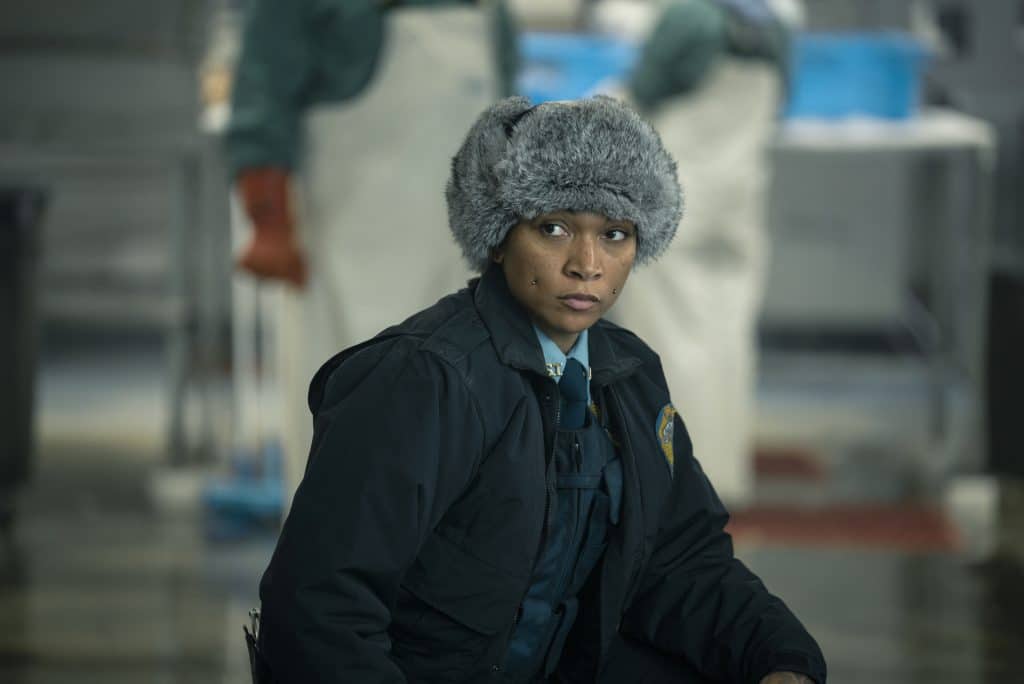
Native Max: What takeaways would you like to see this show have on the viewers? I know it’s such a hard-hitting show; it’s so close to home. I understand this touches on a lot of the fears that Indigenous and Native women have about their safety. Also, native women face a lack of security. What do you hope for that? Also, what impact do you expect it to have on everyone outside of native women?
Reis: Being an Indigenous woman and a Native woman, we live in a matriarchal society, and we’re very strong people, especially women. Our women are sacred. We’re child bearers, life-givers. There’s power in numbers. When we stick together and work with each other, not against each other, there’s so much more power. We’re so powerful individually, but together, when we have unity, there’s so much more power in unity versus everybody fighting each other. That’s one thing I would love, and it’ll tie into the story once everybody sees all the episodes. That’s one thing I want people to take away from this. And I hope that the Iñupiat, Inuit, and Alaskan native people are proud to see themselves in the community. Not just Navarro herself, but in the community represented all over the place, not just one person.
I like that it has an element of suggestion, not telling you what to believe. You can kind of rock with the rational, man-made, this is what happens, or you can rock with the spiritual side of the intuition. There may be something more out there. This show has you question whether you believe in it or not, that there is something other than ‘we walk amongst the dead.’ Also, the land has never belonged to us. We have always belonged to the land. When we work together with Mother Nature, she’s happy. And when we don’t, she’s upset. We have to treat her with respect and work with her, not against her. I hope the viewers are happy, entertained, and scared. I hope you guys love it as much as we loved making it because it was a beautiful project, and I’m proud of what we did.
Native Max: Lastly, because we’re a fashion magazine, I just wanted to ask, who is your favorite native designer right now? What are you wearing?
Reis: Kayla Lookinghorse! That is my homie. I love her. I have a Sno Baby body chain right here today. Kayla Loookinghorse styles me. These beaded earrings have the red hand print on them from Lisa Blessings; they were a gift to me from Roxanne White. She runs the MMIW People and Families organization. She gave me these to me at her march. She is my favorite; she’s my home girl. I love her to death.
Check out Reis in the fourth season of “True Detective: Night Country” on HBO Max.

